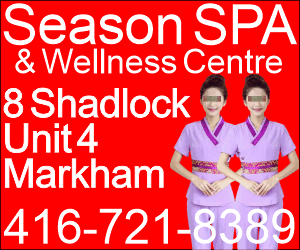
A picture has been making rounds on social media of a young woman giving a man a head and shoulder massage. What seems to have excited or angered the married population is the fact that the man’s head is resting comfortably between the woman’s breasts. But beyond the morality of this positioning, one has to question the professionalism of these salon masseuses that are becoming quite popular.
Jainita Patel, a physiotherapist at Human Mechanic Physiotherapy, says before one gets a massage, a form should be issued and filled out detailing the individual’s health condition, which will then guide the masseuse to choose the right kind of therapy and technique.
There are different types of techniques or massage therapies used for different purposes. Swedish massage is one of the most common types of massage therapy and it is great for stress and pain relief, injury recovery and prevention, among others.
The deep tissue massage works deeper layers of muscle and tissue and is ideal for relieving chronic pain and tension in the body. Sports massage uses techniques specific to the athlete’s needs.
Before an event, sports massage loosens and prepares muscle for the strain of performance and helps reduce injury. Sports massage also helps the athlete recover faster after an event.
According to Dr George Bwesigye, a general practitioner at Najjera Hospital, massage therapy is a completely safe treatment, and if done right, it can help increase circulation, promote nervous system functioning, boost the immune system, reduce blood pressure and relieve pain as well as muscle tension and stress. But the reality is that there have been cases of new injury as well as aggravation of existing problems.
Dr Bwesigye notes that it is unlikely for a healthy person to be injured by a massage but he nevertheless urges people to only get massages from trained professionals to avoid accidents. “A professional masseuse has been trained on anatomy and physiology, ethics and safety and health considerations related to massage, which make a difference in the experience,” he adds.
For those with low platelet counts and weaker bones, Dr Bwesigye says getting a body massage may have adverse effects. It should also not be done in the area of wound and blood clot as it can result in more severity.
Coleen Okumu, a physiotherapist, opines that understanding how the body works is very important before any kind of therapeutic treatment is administered. If you have chronic pains, are suffering from osteoporosis or arthritis, you must consult a specialist.
The masseuse ought to know the kind of pressure and technique of massage your body requires, how much pressure to exert on particular body parts and which nerves should or should not be pressed.
For instance, if you have had an accident in the past and still have a lingering pain or have conditions such as vein thrombosis, you must never get a massage from an untrained masseuse.
A wrong and vigorous massage has the potential to move a blood clot into veins. Once this happens, the clot blocks blood supply, resulting in death.
Pain
Patel also notes that a massage might trigger more pain response because a deep tissue massage releases free radicals that have built up inside muscular knots and this might make a person feel sick for a day or two.
To reduce the pain, a therapist might employ flushing, flowing, gliding and calming motions to flush out all the toxins and fluids they have just worked up in the tissue after the session.
The main thing you as a client need to remember is that no matter how experienced your therapist is, they are not mind readers. While they might pick up body clues like, tensing up, unusual grunts and changes in breathing they expect you to tell them when it hurts a little and what hurts a lot.
While the massage relieves the tension and releases the toxins, your body might still feel the pain. If this happens, it is advisable to take a pain killer such as aspirin or ibuprofen to help reduce inflammation.
Allergic reactions
Some therapies use oils and creams that might cause allergic reactions. It is better to inform therapist about your medical conditions before entering the massage room. Intense and fiery massage can also lead to internal bleeding and damage nerve, however, it happens rarely.
Too much pain does more harm than good according to Okumu. “Unfortunately many people think that a massage is working only when it is painful.
Too much pain only adds to the body’s tension levels, further hardening the muscles instead of softening them. This forceful kneading can also irritate sore muscles even further, bruising, and increasing stress.
The goal is therefore to apply just the right amount of pressure to start that relaxation response, loosen and lengthen muscles, and release tension,” explains Okumu.
An intense massage may drain all energy, leaving you exhausted. It is better to avoid stressful works post session so that your brain and body can adjust. If your massage therapist is using enough force on your body then ask her/him to discontinue.
Pain is not a sign of massage being effective. Slower force softens muscles. You can also feel sick for a day after the session.
How often?
So many consider massage a form of pampering, so we only do it when we must. Yet regular body massages are an important component of health maintenance.
“Do not wait until you are injured or too tensed up in order to get a massage. As therapists we find it more difficult to restore your body to health if you wait until a crisis comes up.
Regular massages make your tissues flexible, pliable, and easy to get rid of pain,” Okumu says. She notes that massages are a form of just like regular exercise or eating a balanced diet.
So how often should you ideally get a massage? Okumu suggests that a healthy individual should have a massage at least twice a month. Those with chronic conditions or in need of special care should consult with their doctor on how often and what type of massage they should have.
Avoid alcohol
It is tempting to want to drink a glass of wine before a massage, especially when you are in one of those tranquil spas. However, experts advise against the consumption of alcohol before a massage because if someone is intoxicated, a massage will speed up circulation so much that the alcohol will flush into the tissues and hit the blood faster and stronger.
The body also filters it faster, so instead of a rush of drunkenness, you just get sick.
editorial@ug.nationmedia.com
Let's block ads! (Why?)



































































































